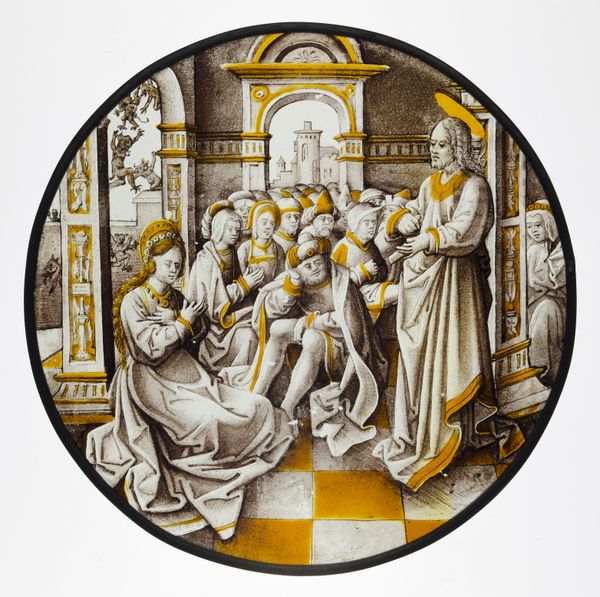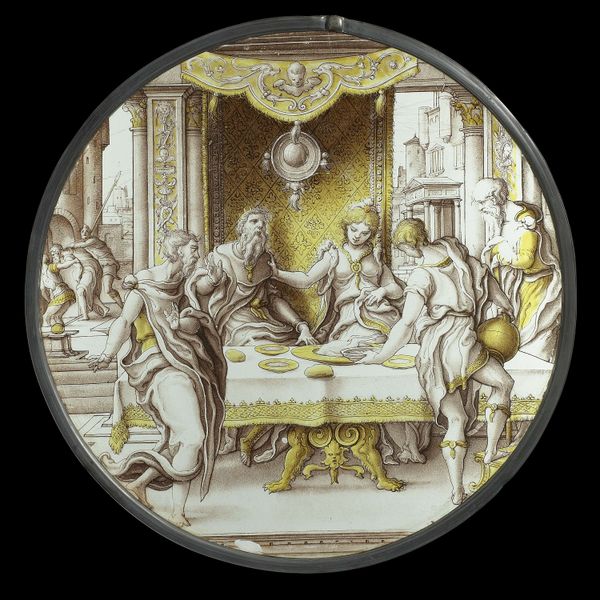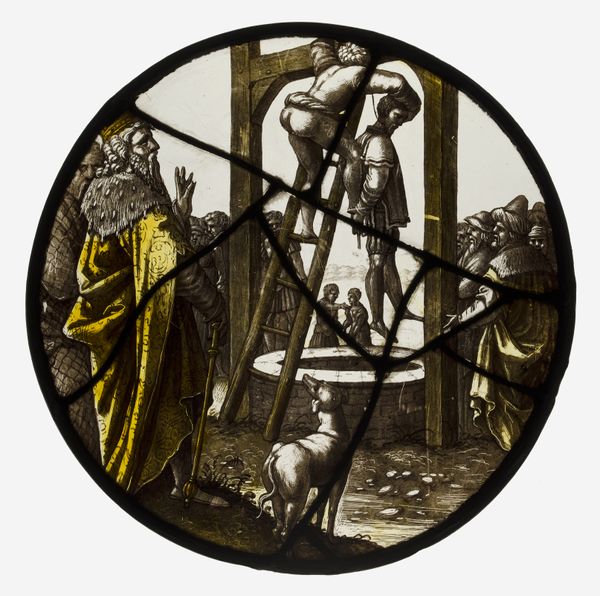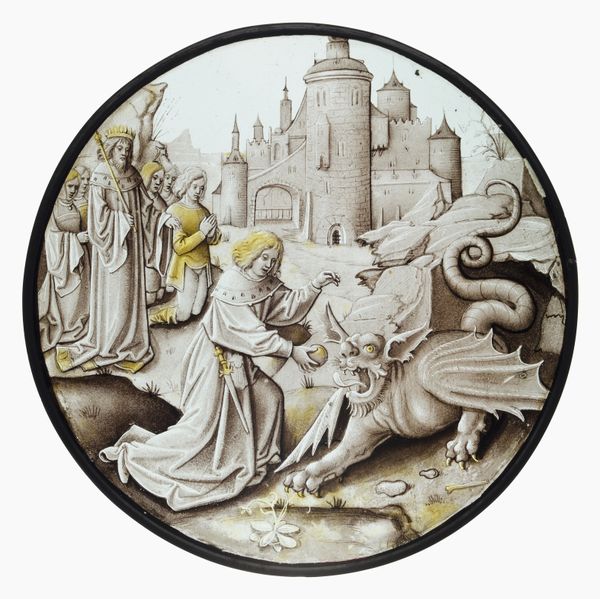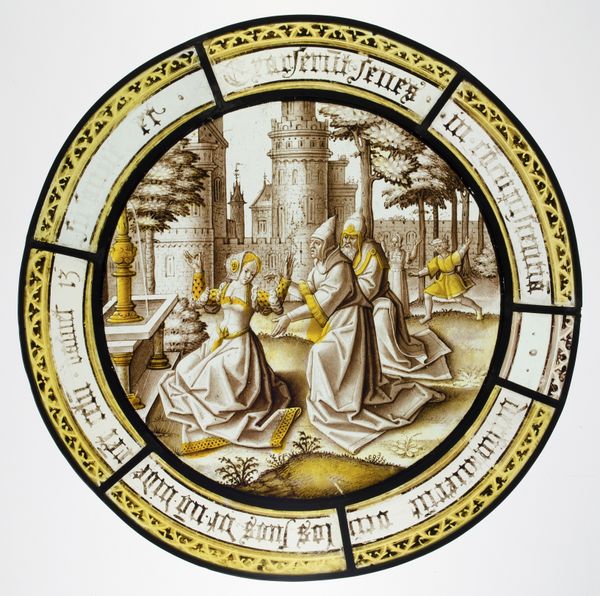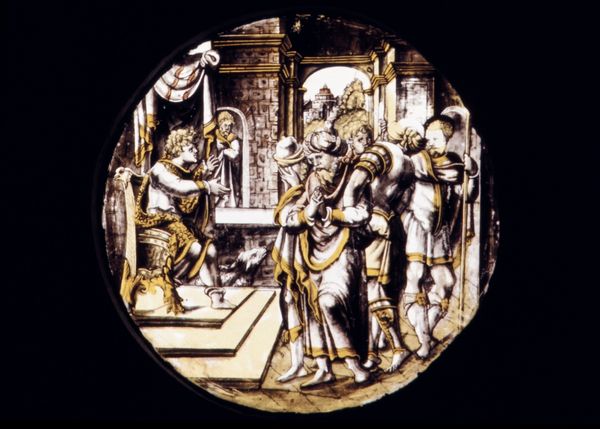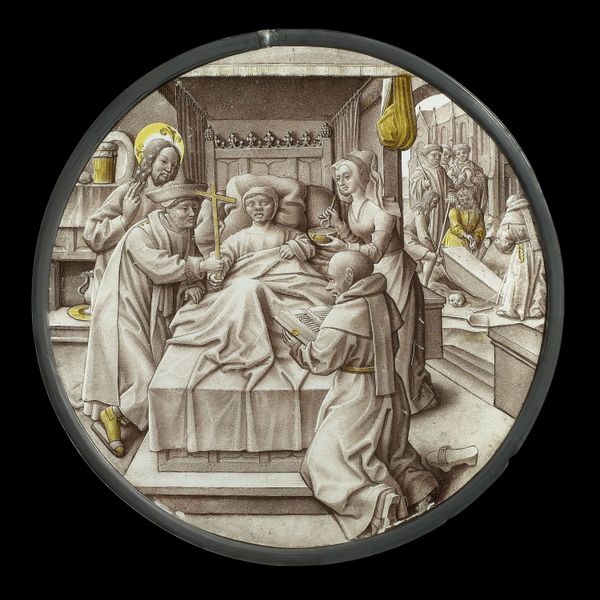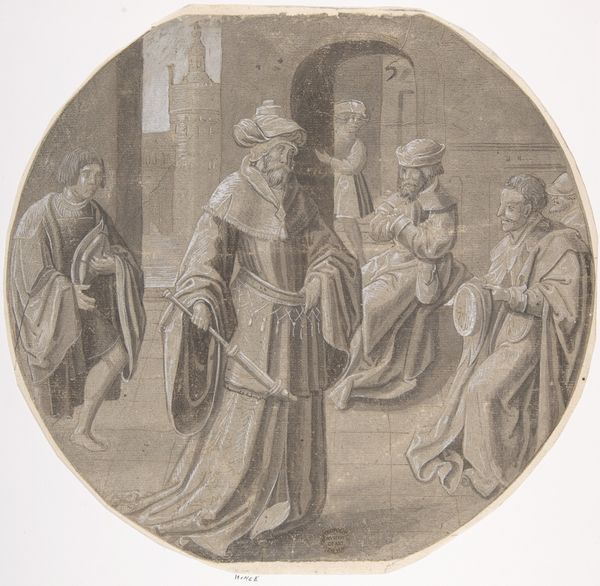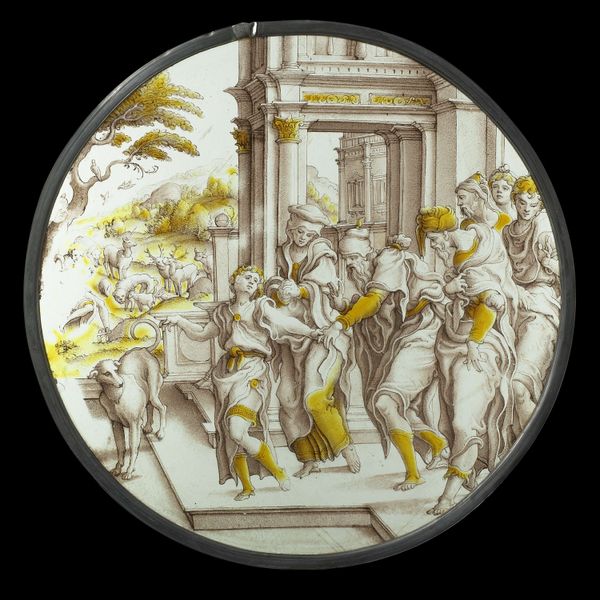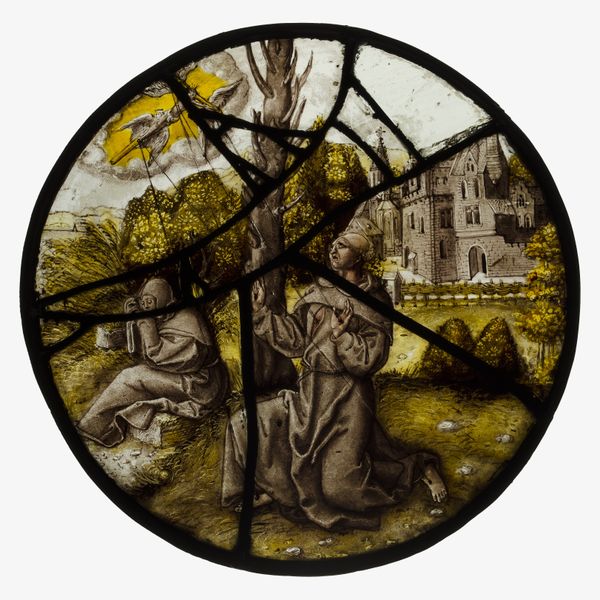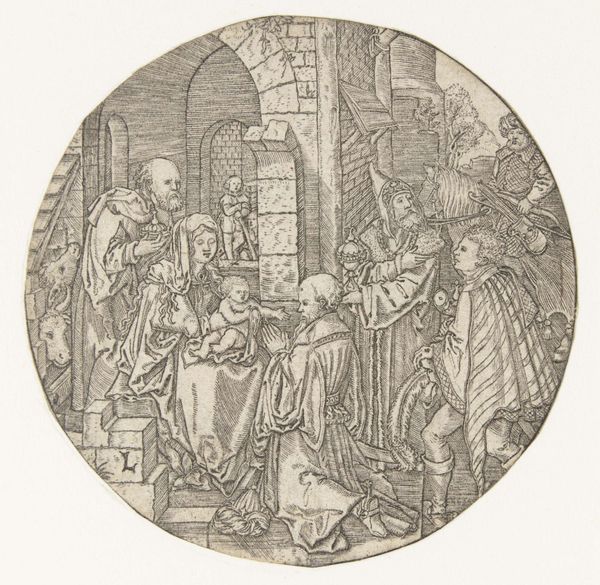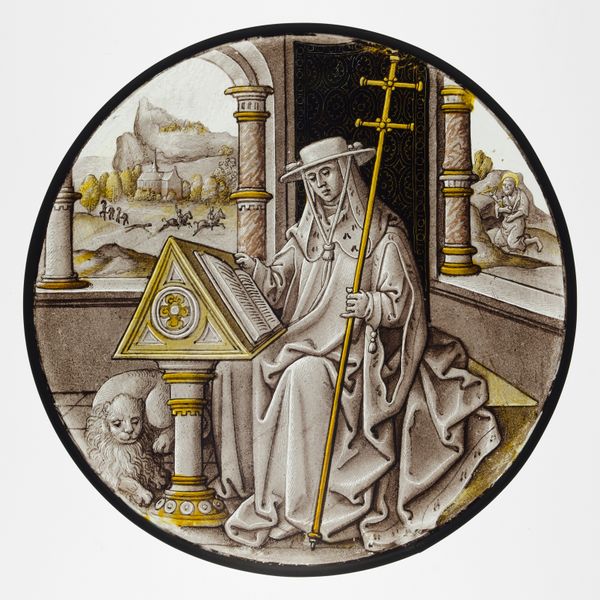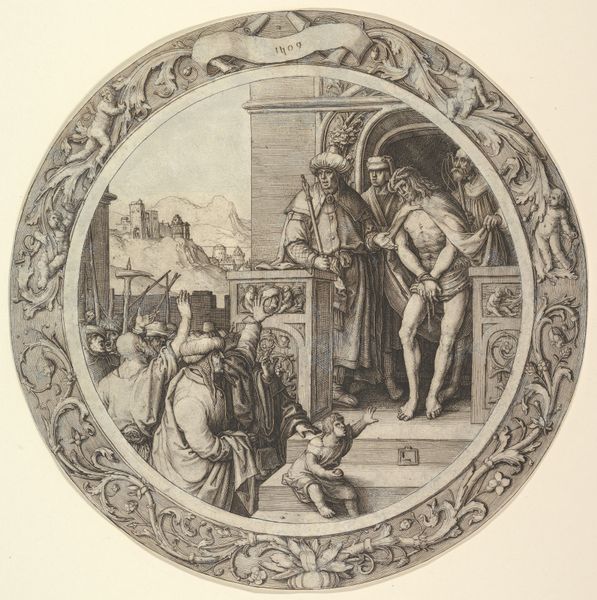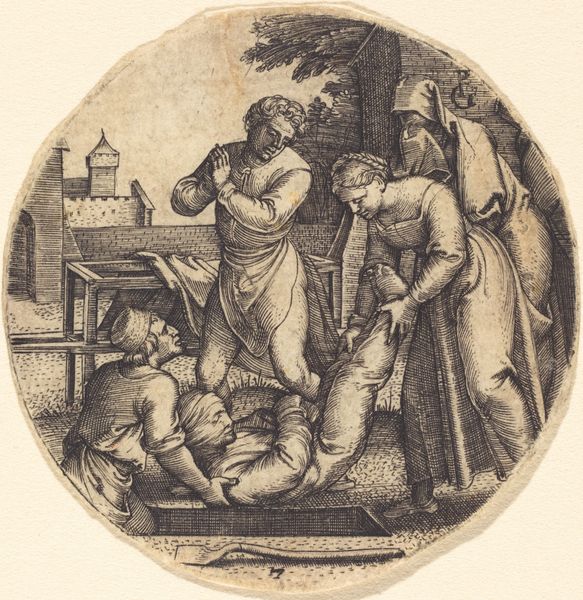
print, glass, engraving
#
portrait
#
germany
# print
#
sculpture
#
figuration
#
11_renaissance
#
glass
#
history-painting
#
italian-renaissance
#
engraving
#
virgin-mary
Dimensions: 13 1/4 × 1/4 in. (33.7 × 0.6 cm)
Copyright: Public Domain
Editor: This is "Roundel with Adoration of the Magi" by Heinrich Aldegrever, dating from 1535 to 1545. It’s an engraving, and the scene is depicted within a circle. It strikes me as rather formal and rigid, not what I expect from such a tender biblical scene. What stands out to you? Curator: It's interesting you find it rigid. As an iconographer, I'm drawn to the precise symbolism at play. The roundel format itself echoes the cosmos, containing the sacred event. Consider how the magi are presented – each represents a different continent then known to Europe. Notice the varying ages and complexions – they symbolize the universality of Christ’s message. Editor: So, the artist wasn’t just telling a story but also making a point about Christianity’s global reach? Curator: Precisely. And observe the chalices the Magi offer. These aren't just gifts; they prefigure the Eucharist, Christ’s sacrifice. Each element is carefully chosen, loaded with meaning accessible to the informed viewer of the time. Do you think the use of engraving, versus painting, impacts this reading? Editor: I hadn’t considered that. Engraving gives it a certain precision, doesn't it? Like everything must be deliberate, nothing spontaneous. It definitely reinforces the sense of symbolic weight. Curator: Indeed. It allows for detailed, reproducible imagery. Religious imagery needed to be accessible, to circulate and reinforce the faith through symbols. Editor: That makes perfect sense. I initially saw it as stiff, but understanding the symbols and their distribution shifts my perspective. Thanks! Curator: My pleasure. It’s amazing how a deeper understanding of visual language unlocks such rich layers of meaning and purpose, isn't it?
Comments
No comments
Be the first to comment and join the conversation on the ultimate creative platform.
